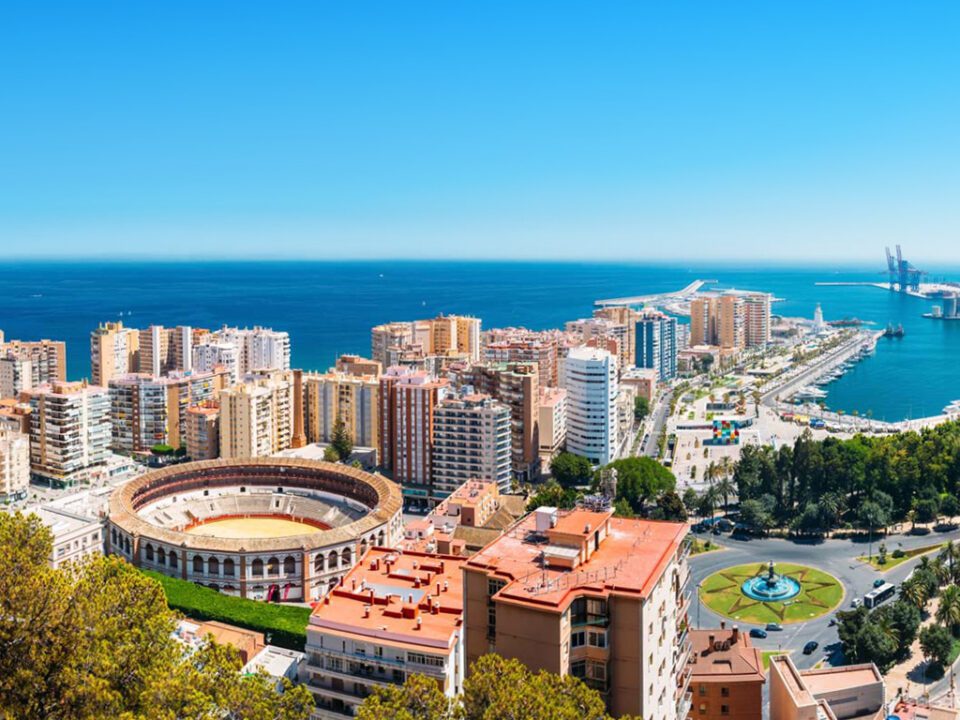Is Spain a Good Place to Live for Expats?
Table of Contents
Spain is a great place to live for expats with its beauty, modernity, and colorful lifestyle. Read our blog for the best expat places to live in Spain.
What Living in Spain is Like As a Foreigner?
Living in Spain as a foreigner is pretty much like a holiday extended throughout the year. This beautiful country offers its residents, both locals and expats, a comfortable and colorful lifestyle. A mesmerizing nature, a rooted history and culture, a modern infrastructure, rich amenities, delicious cuisine, and a robust social life are some of the advantages of living in Spain.
Keep reading to learn what it’s really like to live in Spain as an expat and get detailed information on the best areas to live in Spain for expats.

What Should You Expect From Living in Spain As an Expat?
You can expect a cozy, pleasant, and more laid-back lifestyle from living in Spain. Spain offers comfortable living conditions for all, and at more reasonable prices than most of the other Western European countries, thanks to its modernity. When combined with Spanish people’s laid-back view of life, we can say that living in Spain is almost like a holiday every day.
However, this doesn’t mean that living in Spain as an expat has no hardships. Moving to a foreign country for the first time always comes with challenges. Here are what you should know before moving to Spain and what you should expect from living in Spain as an expat;
Cost of Living in Spain
The cost of living in Spain is pretty much lower than most of the metropolitan areas in other Western European countries. You can fulfill nearly all of your basic needs for less money including accommodation, food, transport, healthcare, education, and utilities.
Spain is a relatively cheaper country overall. But, you may prefer moving to Spain by buying an apartment in Alicante for a comfortable life with a lower budget. Alicante is one of the cheapest places to live in Spain. While the accommodation options in the center are a little more pricey, you can find all types of amenities you may need for a comfortable life within a few steps.
You can also find cheaper accommodation options in the smaller towns and villages. These towns and villages may have fewer amenities compared to big cities. But you’ll have no trouble finding your needs thanks to the broad transportation network and cheap public transport.
Working in Spain
Working in Spain might be different from the work life you’ve experienced so far. In Spain, as a tradition, workdays were divided into two intervals with a long break called “siesta” between them. Generally, the workday starts at 08:30 or 09:00 through to about 13:30 and then resumes at about 16:30 till around 20:00. As a result, most places are closed during siesta.
However, this tradition of siesta seems to be diminishing as the times change. Today, only a small portion of workplaces follow this tradition. However, the country still scores above average on the OECD’s work-life balance index, which makes working in Spain alluring for foreigners.
The good news is that Spain welcomes foreign workers. But, people who want to work in Spain should apply for a work permit after securing an employment contract. Also, acquiring a Golden Visa through investments allows you to work and establish a business in Spain as well.

Healthcare System in Spain for Expats
Spain has a very good healthcare system and the World Health Organization ranks the Spanish healthcare system 7th worldwide for efficiency. Spain’s healthcare system provides excellent services through both private facilities and state facilities and many clinics offer both types of care.
Expats in Spain can benefit from public healthcare services if they have residency in Spain.
Expats who can benefit from public healthcare services only need to pay around a quarter of the treatment costs and some prescription fees. Many medical professionals can speak English, especially in the large cities of Spain. However, you might have to take a Spanish speaker alongside you to communicate when you go to a healthcare center in smaller cities and towns.
Education in Spain for Foreigners
Spain’s education system is well-planned and high-quality. The country ranks above average in education among OECD countries. While education is compulsory for children aged between 6 and 16, state education is free for children aged between 3 and 18.
Expats can choose public schools, semi-private schools, private schools, or international schools for the education of their children. Public schools and semi-private schools are the most budget-friendly options among them. These schools follow the national curriculum and most of the classes are in Spanish. However, expat children in these schools can get extra support to overcome the language barrier.
There are a wide variety of private schools and international schools as well. You can choose any of them, religious or secular, British curriculum, American curriculum, or International Baccalaureate. However, you should note that the more prestigious a school is the more expensive its fees get.
Best Places to Live in Spain for Expats
The cities of Barcelona, Málaga, Madrid, Alicante, Seville, Valencia, Cádiz, and Granada are some of the best places to live in Spain for expats. As one of the most popular destinations in the whole world, it’s no surprise Spain has so many expat-welcoming cities. You can choose any of these cities to live in after deciding on what type of lifestyle you want to lead.
For instance, you may purchase a house in the centers of Malaga, Alicante, Cádiz, or Murcia for a holiday-like everyday life. These places are among the best places to live in Spain by the sea. If you are looking for a more tranquil and peaceful lifestyle, then you may prefer smaller places like Marbella, Benalmadena, Calpe, or Finestrat. You can check out out blog page to get detailed information about the most beautiful places in Spain to live.
Hopefully, this brief article has been helpful to depict what kind of enjoyable lifestyle awaits you in Spain. If you have decided to settle in Spain, we can help you with the legal procedures regarding residence permits and visas. Don’t hesitate to call us for more information!



